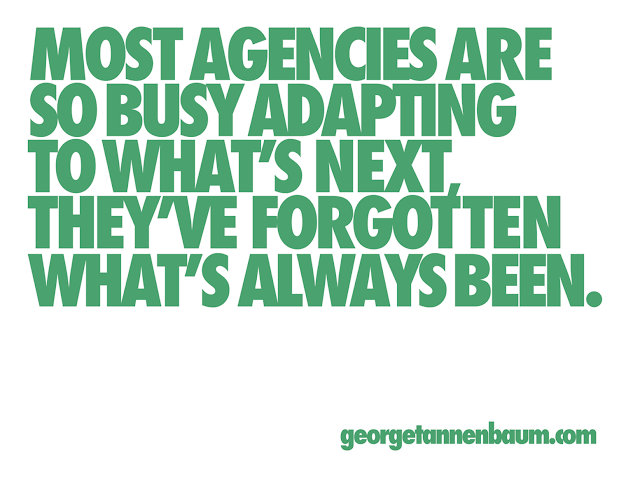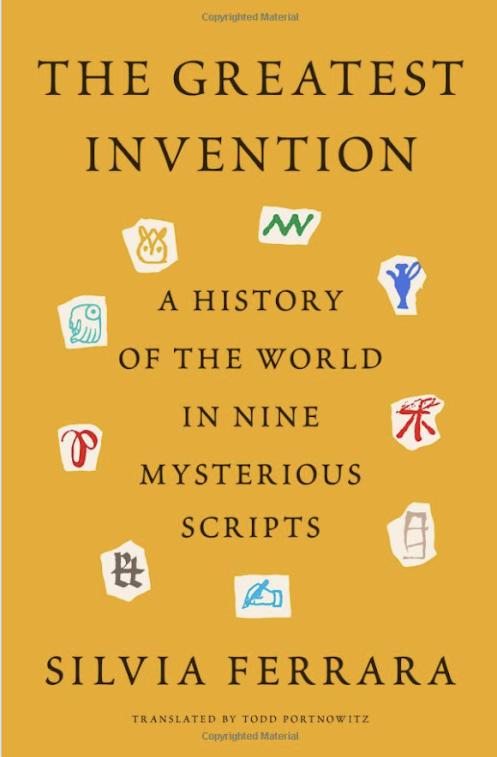For about the last 35 years or so, virtually without fail during those years, I've found a way to read for about an hour a night.
My therapist of all those years calls reading "my restorative niche." It puts back into my brain and soul what the vicissitudes of daily living take out.
I call my reading a long nightly walk with a genius. Because most of the things I read are writ by people with the genius of experience, observation, wisdom, writing or, in rare cases, all four of those evanescent virtues. These reading sessions remind me of work at its best. When I would sit kneecap to kneecap with a Hayden, a Pytka, a Wall, a Tesch or an Errol Morris.
You don't speak during these sessions. You clean your ears with a tunnel-drilling Q-tip and listen.
For the last few years, I've been reading a lot of books by paleontologists, pre-historians and anthropologists. I'm trying to look past trends and wars and quotidian banalities and get at the core of what it means to be a human. I'm more interested in what HASN'T changed in the 200,000 years of our species than in what has changed.
I'm not Einstein but he looked for a Unified Field Theory of life and I am looking for the same. Who are we anyway? What is living? What's right? What's wrong?
The ad above is the essential reason why I'm on this quest. I want to be better at life and better at making a living.
Somehow I think looking at Clovis points will make me a better copywriter. Clovis points--above--date from about 14,000 years ago, give or take a timesheet. They're some of the oldest bits of evidence of human habitation in the Americas. Clovis points were first discovered by modern anthropologists about 100 years ago outside of a tiny town in New Mexico called Clovis.
As a creative person, I trade in Clovis points.
Except my tool isn't a sharp implement for killing beasts. My tool is words.
But like the first peoples so long ago, I lean on my tool.
When the first peoples had an animal to hunt, they had a Clovis point.
When the first peoples had a fish to spear, they turned to their Clovis point.
When they had to fell a tree,
dig for water,
butcher a mammoth,
cut a skin,
kill an enemy,
trade,
they had a Clovis point.
They were small. Once you gained the knack, they were easy to make. They were multi-purpose.
That's how I feel about words.
When a client has a need or a problem, I have a tool that works. I hear myself telling myself ten times a day or eight or two-dozen, "I'll write my way through that."
Meaning I'll use the tools that I know and make them work for the job at hand.
There's a book out now that I haven't read. It's on my Schmindle, and I'll read it soon. It's about writing and it's called
"The Greatest Invention." You can order it here. If you can get past the Wall Street Journal's paywall, you can read a review here.
My point in all this is simple.
There have been a lot of technologies designed and invented to help us get through to others, so we can reach them.
Virtually all of them are cooler, fresher and newer than letters and words.
But as Einstein said, "I do not know with what weapons World War III will be fought, but World War IV will be fought with sticks and stones."
In other words, when things are really bad, when we've blown through all the promise of progress, when nothing is left but ashes and cockroaches, the hominid who can make a Clovis point will be prized.
I feel the same way about my personal Clovis point.
And I wrote this to prove it.



No comments:
Post a Comment